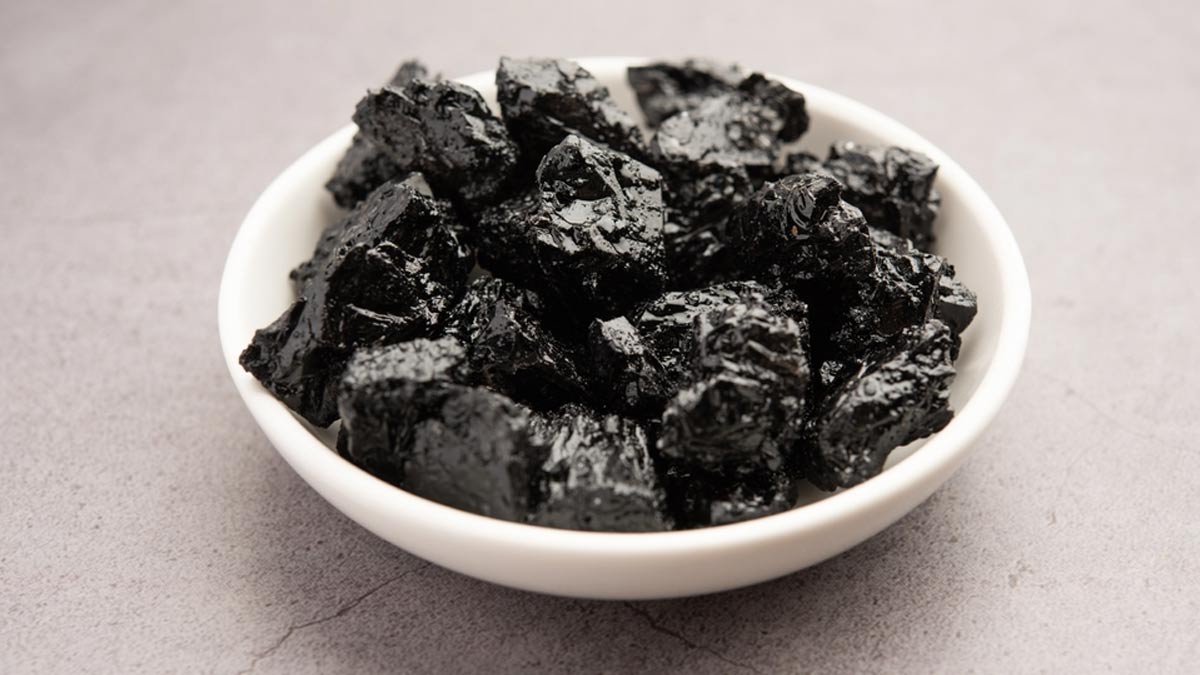
Many people add shilajit into their wellness routine to improve their overall health. This herb found in the Himalayan and Altai mountain ranges has a plethora of benefits, ranging from improving cognitive function to increasing male fertility. However, it is also important to pay attention to your diet when consuming shilajit to avoid potential complications. We spoke to our expert Dr Ganesh Chaudhary, Bachelor of Ayurvedic Medicine and Surgery (BAMS), PHC, Darbhanga, Bihar, who listed foods you should avoid when consuming shilajit for optimal results.
Table of Content:-
Foods To Avoid When Consuming Shilajit
Shilajit is composed of a complex mixture of organic and inorganic compounds, including fulvic acid, humic acid, and minerals, such as iron, magnesium, and zinc. It has been used in ayurvedic medicine for centuries as a rejuvenator and aphrodisiac. According to the International Journal of Alzheimer's Disease, shilajit is beneficial in the treatment of kidney stones, oedema, haemorrhoids, and anorexia, in addition to its usage as an internal antiseptic.

Highly Processed Foods
“Highly processed foods often contain additives, preservatives, and artificial ingredients that may counteract the positive effects of shilajit”, said Dr Chaudhary. Therefore, opt for a clean, whole-foods-based diet to complement the natural properties of shilajit.
High-Sugar Foods
High-sugar foods and beverages can lead to inflammation and disrupt the body's natural balance. Shilajit works best in an environment that supports overall health, so reducing the intake of sugary items can enhance its positive impact.
Also Read: Shilajit For Skincare: Expert Lists The Benefits
Caffeine-rich Beverages
“Shilajit requires proper hydration to support its functions in the body, therefore, limit your caffeine intake as it may lead to dehydration. Also, the caffeine and tannins included in coffee and tea can obstruct shilajit's absorption”, said Dr Chaudhary.

Alcohol
Alcohol, known for its dehydrating effects, can diminish the effectiveness of shilajit. Since shilajit relies on adequate hydration to facilitate nutrient absorption, it's advisable to limit or avoid alcohol consumption when using this supplement.
Foods High in Oxalates
Dr Chaudhary added, “Some foods, such as spinach, beets, and nuts, are high in oxalates. Oxalates can bind to minerals, potentially reducing their absorption. Since shilajit is valued for its mineral content, it's advisable to moderate the intake of oxalate-rich foods to ensure optimal benefits.”
Also Read: Does Shilajit Provide Unlimited Energy? Expert Debunks Myths About Shilajit

Dairy Products
Calcium-rich dairy products can interfere with the absorption of certain minerals present in shilajit. If you choose to consume dairy, it's recommended to do so at a different time than when you take shilajit to avoid potential interactions.
Fatty and Greasy Foods
Foods high in unhealthy fats may hinder the absorption of shilajit in the digestive system. Opt for a diet rich in healthy fats, such as those found in avocados and nuts, to support the overall effectiveness of shilajit.
Bottomline
Dr Chaudhary concluded, “While many people seek to incorporate shilajit into their wellness routines, it's essential to be aware of certain foods that may interfere with its efficacy. As with any dietary supplement, it's advisable to consult with a healthcare professional before introducing shilajit into your routine, especially if you have pre-existing health conditions or are taking other medications.”
[Disclaimer: This article contains information provided by a registered expert and is for informational purposes only. Hence, we advise you to consult your expert before adding anything to your diet, especially if you are dealing with any health issues.]
Also watch this video
How we keep this article up to date:
We work with experts and keep a close eye on the latest in health and wellness. Whenever there is a new research or helpful information, we update our articles with accurate and useful advice.
Current Version